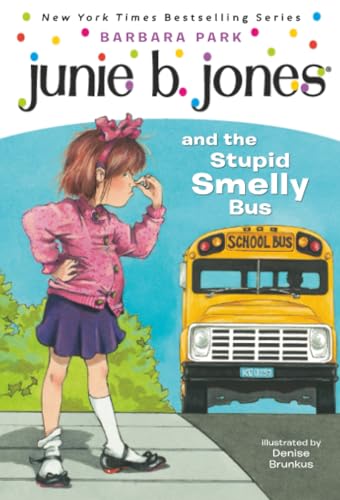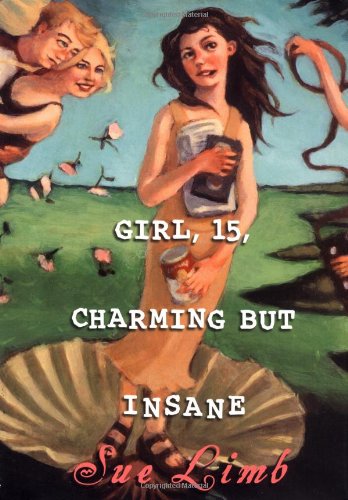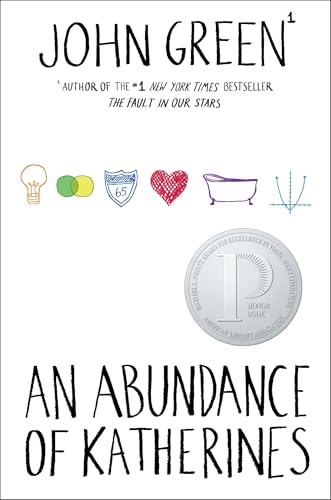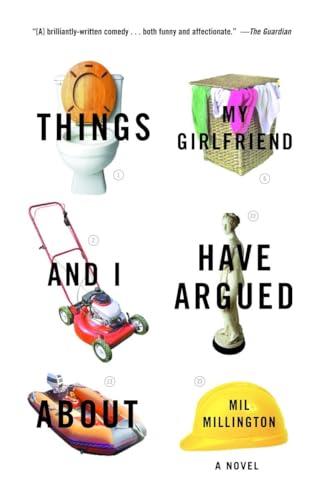 I like Kate DiCamillo. Her book Because of Winn Dixie was a masterpiece in character development and pacing. The Tale of Despereaux won the Newbery Medal. What ever would make her write this new, depressing book, The Miraculous Journey of Edward Tulane?
I like Kate DiCamillo. Her book Because of Winn Dixie was a masterpiece in character development and pacing. The Tale of Despereaux won the Newbery Medal. What ever would make her write this new, depressing book, The Miraculous Journey of Edward Tulane?The story is of a china rabbit who is cold and needs to learn to love, which apparently involves the roughest treatment a china rabbit has ever known. In the story, the rabbit is lost, thrown in the ocean, lives in a garbage dump, watches a little girl die, and gets nailed to a post. Have I ruined the plot for you? Good. Now, there is one more person in the world who won’t be subjected to this book.
I admit, I am a softy. I don’t own The Veleteen Rabbit or read it to my kids. I didn’t even want my nine year old to read Charlotte’s Web because I thought it was too sad (of course, she found it on her own and loved it). But I am not the only one with this opinion on this book. Check out this article in Book World, “When Bad Things Happen to Bad Bunnies.”
And a personal note to Kate DiCamillo. Kate, please check with your doctor about upping your Prozac. Or start taking Prozac. Or even take a vacation. But please, until you get yourself together, don’t write again.
























4 comments:
Pam!!! Step up, so I can smack you! (With love, of course.)
The Velveteen Rabbit and Charlotte's Web *are* sad. However: I believe that their poignancy is of the sort that is very important for young readers (and makes them beloved for adults as well). The Velveteen Rabbit is a rather more complex version of a fairy tale. Despite the heartbreaking idea of the sick boy and the beloved bunny being thrown out, it ends up just fine, with the bunny becoming real. It's actually a realization of most kids' fantasy--that their favorite stuffed friends are real and have feelings, after all.
And Charlotte's Web: whew. E.B. White really did himself proud with that one. It's a great essay on the triumph of the spirit: despite Wilbur's shortcomings, with the help of a devoted friend, he overcomes staggering odds. And Charlotte? Well, yes, she dies, but...that's part of life, and her loving spirit lives on in her three daughters. To make the book's point rather blunt, I think it is this: Yes, things suck sometimes, but you can still hold out; and yes, people/spiders die, but life goes on and there can still be joy in the face of sorrow. Charlotte's Web is more than a nice story; it's a wonderful object lesson for its readers.
NB: It was also the first movie I ever saw. I was three years old and saw it at the Clemson Theatre in scenic Clemson, SC.
I bow to your greater literary knowledge, expertise, and analysis.
Except...
The hardest thing I have found as a mother, is when to protect your kids from any hardship because you can't stand to see them hurt and when to let them face difficulties (even in a book, which is form of practicing for life) so they can grow stronger.
And oddly enough, the challenges I choose to duck come to find them anyway - my fourth grader finding Charlotte's Web on her own last year. Or choosing Number the Stars to read this year - which I would have never picked for her. You want your kids to stay innocent for so long, but the world will step in no matter what you do.
...and I, in turn, bow to your expertise as a mother, something that I will never have.
I wish that I could protect kids--or grownups, for that matter--from the kind of hurt that comes from losing something or someone that is loved. In a way, when I first read "The Velveteen Rabbit," I hated it, because I couldn't stand the thought of my own beloved stuffed critters being thrown out or burned. But: the Velveteen Rabbit's rebirth makes the sadness go away. His old life as a stuffed animal friend is gone, but he has a wonderful new life as a real bunny. Sad though the story is, I think it helped to prepare me for some of the sadnesses that would come along later in life.
I think that if I were a parent, I'd be in the same boat with you. I'd want so much to protect my babies from any idea of hurt or sorrow. But we can't protect them forever, and literature can help us with that. Maybe this is protection in a different way: if we allow them a little bit of hurt now, the hurt in the future won't be quite so shocking.
Lessons my daughter has learned from Edward Tulane:
Little children can cough and cough so hard that they cough up blood.
Little children can die from coughing. This is especially terrifying if you have asthma or get croup.
It’s okay to run away from home.
There are mean, mean adult people out there who crush dolls or throw them in trash heaps or smash them; who hit their children and tell them they are going to die; who throw homeless people from trains and kick dogs; who ridicule their elderly parents or refuse to let children keep a beloved toy.
The adults who do these things never ever get punished for their actions. Nothing bad happens to them at all; they just walk away scot-free.
Bad things happen, over and over again, especially to those who are young, good, and innocent; that’s just how life is. Even when you are loved.
If someone tries to cheer you up or give you hope, just ignore them and they will go away.
If someone tells you that you should just end your life, you should consider it.
Since Edward is “just a toy”, you don’t have to feel bad for him. He’s helpless. These awful things are bound to happen to those that are helpless. Like toys. Or forests. Or animals. Or children.
It's okay to be abused and miserable and pathetic and defeatist in this life because after you die it's all so lovely. You don’t really need to even try to change your attitude. In the end, it won’t matter how you lived.
Don't waste your time hoping for love because no one will love you until you're dead.
It’s okay if you never try. It’s okay if all you ever are is a victim.
Because the good news is: maybe, just maybe, in the end (whether that be the literal end of the story, or the obvious metaphorical end of life), all the torture and pain and despair and hopelessness MIGHT end well. And everything that happened won’t matter. In fact, it never did. All that matters is the ending.
These are not the lessons I want my child to learn, from this or any other book.
This is a time in history where, more than ever, I want my kids to know they are active participants in life; that they can change the world with their ideas and thoughts; that they can have hope and joy and that they are not victims.
The Miraculous Journey of Edward Tulane is reminiscent of the old Grimm fairy tales; the old Christian tales of the bad things that happen to naughty little girls and boys; the violent and disturbing old ‘children’s’ cartoons like Tom & Jerry, and Road Runner. If I want to teach my children perseverance, I will read them Little House on the Prairie. If I want to tell them the adventures of inanimate objects without cruelty and despair (in other words, the challenges life gives us) I will read them Hitty; Her First Hundred Years. If I want her to understand death of a loved one, we’ll do Charlotte’s Web.
If I want them to learn about love, I will read them hundreds of other stories that are positive and hopeful throughout: let’s start with The Velveteen Rabbit. Maybe Edward should read The Velveteen Rabbit himself.
Sincerely,
Rhonda Baker
Post a Comment